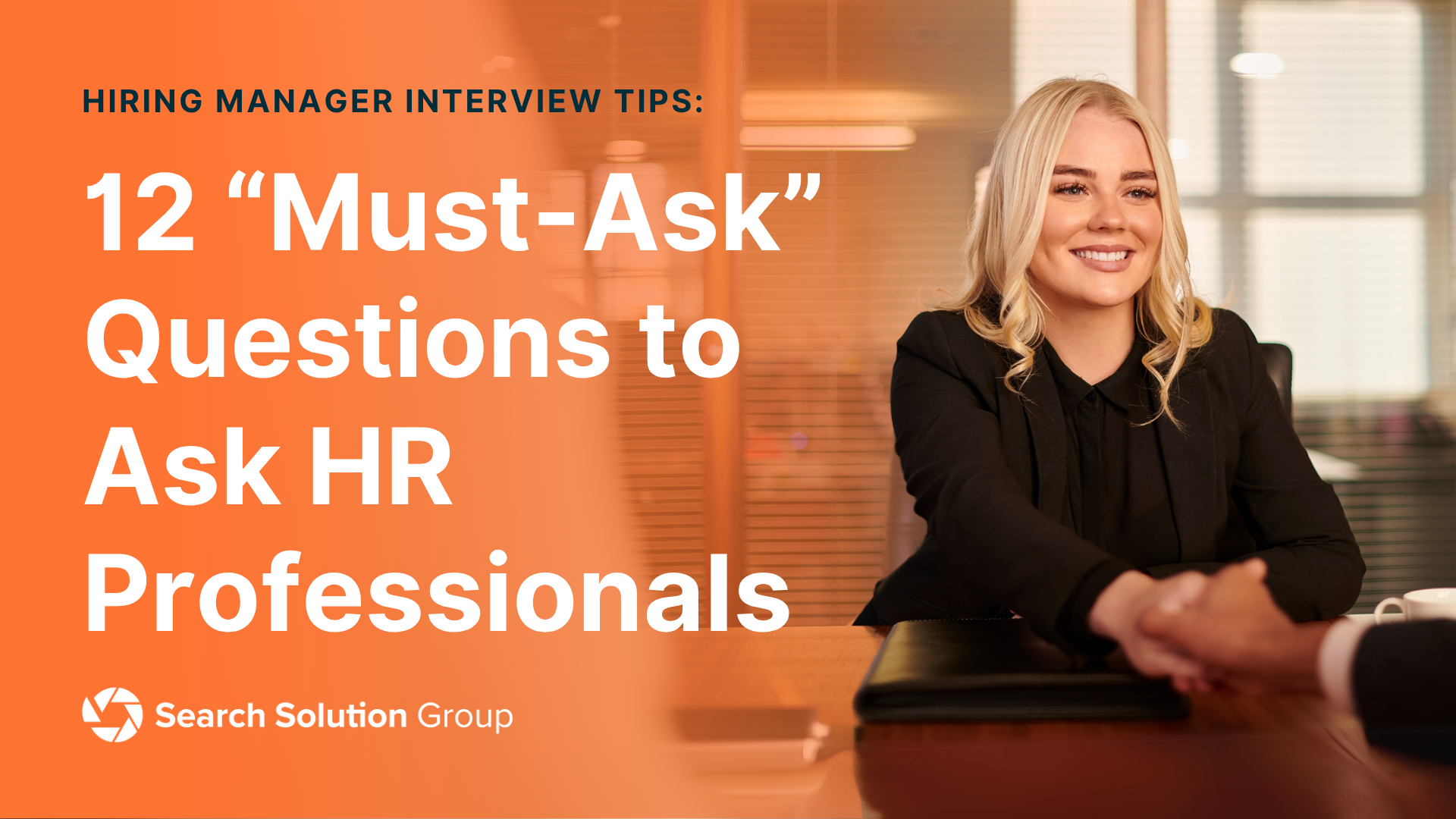If you’re looking to interview a potential HR Professional for your company, it’s crucial to have well-crafted questions to help discern what the ideal candidate looks like and if they are the right fit for the role. However, generating a compelling list can be challenging, particularly if you have limited resources or time. That’s why we’ve compiled 12 “must-ask” interview questions for HR professionals that will enable employers to assess candidates in future interviews thoroughly.
1. What inspired you to pursue a career in HR, and what unique skills and experiences do you bring to the table?
HR professionals play a vital role in any organization; a candidate’s motivation for joining the HR profession is crucial in determining their suitability for the position. This answer will give you, as the interviewer, clarity on a candidate’s drive, dedication, and passion for the HR profession. Additionally, HR professionals need communication, problem-solving, decision-making, and critical thinking skills. Candidates aware of their unique skills and experiences can demonstrate how they will add value to the organization and make a difference in the HR department. Their response will give you insight into how they will approach situations, their creativity, diversity, and inclusivity level, and how they will fit into the organization’s culture.
2. What do you see as a major change, event, or trend that will change HR in the next five years?
HR is a dynamic field – constantly evolving to keep up with societal changes and technological advancements. By asking this question, you can gauge their forward-thinking approach to HR management. Their response will also give you insight into their knowledge of HR industry trends and gives you a chance to assess the candidate’s ability to stay informed and keep a pulse on emerging HR issues. Moreover, the candidate’s response can provide you with a glimpse into their ability to devise strategies and solutions that will keep the HR function relevant and effective in the future. Awareness of how the HR landscape may change in the coming years and its impact on the organization can inform recruitment decisions and help select the right candidate for the role.
3. How do you stay current on location-specific labor laws and HR regulations?
With changes in policies and regulations occurring frequently and varying across different locations, a competent HR professional must be knowledgeable about the changes that affect the organization they serve. Suppose an HR professional is not up-to-date with changes. In that case, they risk putting their organization at risk of non-compliance, which could lead to legal issues, penalties, and damage to its reputation. The ideal candidate should have a strong desire to learn and a willingness to go out of their way to stay up-to-date. They might cite their reading habits, regular training, or membership in professional associations as examples of how they stay informed. In addition, effective HR professionals regularly rely on reputable sources of information to ensure they stay abreast of federal, state, and local laws- including conducting benchmarking studies. When HR professionals demonstrate awareness of regulatory compliance, it promotes a positive corporate culture and helps their organization avoid potential legal issues.
4. What are the most substantial assets you have to offer, and what is one area you’d like to grow in?
Asking your HR candidates about their substantial assets and growth areas is important. Firstly, it provides insights into the candidate’s understanding of their strengths and how they can contribute to the organization. Having a clear idea of their assets and knowing how to capitalize on them can help the candidate achieve their potential and become an invaluable team member. Secondly, asking about growth areas demonstrates a willingness to learn and develop new skills. In today’s fast-paced business world, it’s essential to have a growth mindset and continually improve to keep up with the changing industry trends and business needs. Finally, this question enables the interviewer to evaluate the candidate’s compatibility with the organization’s culture and values. The response to this question can highlight attributes and traits that align with your company’s vision and mission.
5. What is your recruiting approach? How do you find talented job applicants?
A good HR professional should have a comprehensive recruiting approach that goes beyond just posting job openings and waiting for applicants to apply. They should be able to use various sourcing methods to attract top talent to the organization. This could include using social media, attending job fairs, networking events, and employee referrals. In addition, assessing their ability to evaluate job applicants effectively is essential. HR professionals should be able to identify the critical skills, experience, and personal traits required for each position. Asking about their recruiting approach can also give you an idea of their creativity and innovation in hiring. The best candidates will have fresh ideas for attracting top talent to your company and may be able to offer new and creative solutions for finding suitable job candidates.
6. What are the most important traits of an employee?
Knowing what qualities make a successful employee is essential in ensuring the candidate has the right skills and character to excel in the role. Asking the right questions for HR professionals allows them to provide insight into their organization’s ideal employee. In addition, their answer will provide you with essential information on how the organization views its employees and what your company values. Employers often look for distinct qualities in their workforce, and this question can help candidates understand these critical traits and determine if they meet the organization’s expectations.
7. What is your experience in dealing with conflict within an organization?
Conflict within the workplace is an inevitable reality that most organizations face, and having a professional who possesses the necessary skills and experience to address and resolve these conflicts is essential to maintain a healthy and productive work environment. This is especially important in HR, where the professional manages employee relations, resolves disputes, and promotes a positive workplace culture. Therefore, asking about a candidate’s experience in dealing with conflict allows the interviewer to gauge the candidate’s capabilities in handling these challenging situations. The candidate’s response to the question will provide insight into their knowledge of conflict resolution techniques and tools. It will also allow the interviewer to assess the candidate’s emotional intelligence, communication, and problem-solving skills.
8. What are the most important qualities of an effective leader?
Effective leadership qualities include honesty, integrity, and accountability. A leader must also possess excellent communication, problem-solving, decision-making, delegation skills and the ability to motivate and inspire the team. A great leader leads by example, is willing to take ownership and responsibility for their actions/decisions, and is open to feedback and suggestions. Assessing a candidate’s understanding of leadership also allows you to gauge whether their leadership style aligns with your company’s culture and values. A great leader can significantly impact an organization’s success and growth prospects. Therefore, asking this question during an interview can assist you in identifying the perfect candidate who possesses the necessary leadership qualities required to drive your company forward.
9. Can you describe your previous experience handling employee relations issues, such as performance management, conflict resolution, and disciplinary actions?
Effective employee relations management requires a specific skill set, and the ability to manage employee relations issues while maintaining a positive company culture is an essential aspect of HR’s role in any organization. This question allows the HR professional to showcase their expertise, demonstrating their ability to manage challenging situations and provide the best possible outcomes for all involved parties.
10. What would you measure to determine whether the HR department was doing an adequate job for your company?
This question helps you evaluate the candidate’s understanding of the HR department’s role and responsibilities. A successful HR department should measure key performance indicators (KPIs) like employee satisfaction, retention, and turnover. A candidate’s response to this question can reveal their understanding of the importance of data-driven decision-making in HR. HR professionals should be able to collect, analyze, and interpret data to make informed decisions that improve organizational performance. In addition, candidates who provide specific examples of HR metrics relevant to the company’s industry and goals indicate that they have researched the company and have a strong understanding of its needs.
11. Tell me about a time when you were overwhelmed by your workload and how you overcame it.
In today’s fast-paced and dynamic work environment, it is not uncommon for employees to face multiple deadlines and responsibilities simultaneously. The answer to this question will tell you a lot about how the candidate approaches their work, problem-solving abilities, and adaptability to different situations. If the candidate has already overcome such a challenge, it can demonstrate their resilience and provide insights into their strategies for managing stress and workload. In addition, the answer to this question can help the interviewer assess the candidate’s communication skills. The interviewer can evaluate if the candidate can articulate their thoughts and explain their actions clearly and convincingly. This skill is essential in working with team members and communicating tasks effectively.
12. Can you discuss your experience leading or participating in company-wide diversity and inclusion initiatives?
As organizations become increasingly diverse, it is essential to integrate a diverse workforce into organizational culture. Assessing the candidate’s ability to lead or participate in company-wide diversity and inclusion initiatives is essential. This can provide insight into the candidate’s experience and handling diversity-related issues and how they handle them in the workplace. Hiring candidates adept at promoting diversity and inclusion in the workplace can positively impact organizational culture, productivity, and employee morale and help mitigate legal risks.
With the right HR talent, your organization can benefit from a tremendous amount of positive energy and success. Taking the time to ask questions for HR professionals when interviewing potential candidates is essential for setting your team up for success. By consistently asking key questions in your interview process, such as those outlined here, you can ensure that the right individuals are being hired to the HR team. In addition, taking the time to ask strategic questions will ensure you get quality talent and provide valuable insight into the candidate’s expertise and suitability for the position. Investing in a solid interview process is a worthwhile endeavor. It will pay dividends in having knowledgeable staff well-equipped to help make critical decisions for your company. Finding top-notch HR staff is no easy task – but with these 12 must-ask questions, your organization can discover great recruits and hire competent employees with the skills and knowledge necessary for success.






